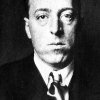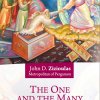Kada je u avgustu 2018. godine postala dekan ovog prestižnog njujorškog fakulteta, Jelena Kovačević, rođena Beograđanka, i ćerka čuvenog Živorada Kovačevića akademika, ambasadora Jugoslavije u SAD i bivšeg gradonačelnika Beograda, upisala se u istoriju ovog fakulteta kao prva žena koja je došla na čelo ove institucije osnovane još sredinom 19. veka.
Ovaj profesionalni uspeh praćen je čak i interesovanjem za njen privatni život, pa je nedavno New York Times posvetio ceo tekst njoj i njenim privatnim i poslovnim navikama.
Porodica naučnika
Kovačevićeva je profesorka inženjerstva, ima 56 godina i iz Beograda je. Njen otac je Živorad Kovačević, srpski političar, diplomata i akademik koji je ujedno bio i 60. gradonačelnik Beograda u periodu između 1974. i 1982. godine, ali i ambasador Jugoslavije u SAD u od 1987. i 1989. godine.
Pre nego što je postala dekan, 15 godina je provela radeći na Univerzitetu Karnegi Melon u Pitsburgu, a radila je i na Univerzitetu Kolumbija.
Obrazovanje je započela u Srbiji gde je završila Matematičku gimnaziju, a nakon petogodišnjih studija na beogradskom ETF-u odlazi u Ameriku gde nastavlja postdiplomske studije. Doktorsku disertaciju odbranila je na Univerzitetu Kolumbija na kom dobija zvanje doktora elektrotehničkih nauka.
Oblast istraživanja kojom se Jelena bavi već 30 godina obuhvata obradu signala, biomedicinski inženjering i "data science", a autor je i nekoliko knjiga.
Život u Njujorku
Živi u Njujorku, na Aper vest sajdu, sa suprugom Đovanijem Pacifičijem (61) koji radi za IBM, a zajedno imaju ćerku Danicu koja će uskoro diplomirati na Univerzitetu Džon Hopkins u Baltimoru.
- Nadam se da će moje imenovanje na mesto dekana pokazati i devojčicama i dečacima šta je moguće postići na polju matematike, inženjerstva, nauke i tehnologije - izjavila je Kovačević za Njujork tajms.
Ona se bavi različitim naučnim oblastima, od upravljanja saobraćajem do medicine, ali je posvećena i uspostavljanju rodne ravnopravnosti na Tandonu.
Jelena je za Njujork tajms ispričala kako provodi vikende.
Buđenje tačno u šest, kući tek u 21
Ne navija alarm za buđenje, već se sama budi svakog jutra u šest, a iako je odrasla na jakoj turskoj kafi, u trudnoći je prešla na onu bez kofeina, te uz doručak – koji se uglavnom sastoji iz ovsene kaše – pročita novine, a zatim odlazi na trčanje u Central park sa mužem i ćerkom.
Istrčala je pet njujorških maratona, ali sada trči rekreativno. Često posećuje mediteranske restorane, gleda fudbalske utakmice u obližnjim kafićima, a kada je kod kuće, gleda Netfliks.
Naporno radi, te često ne dođe kući pre devet uveče.
- Nedeljom se od jedan do šest popodne pripremam za narednu radnu nedelju - ispričala je Jelena. Radi u istoj kancelariji sa svojim mužem koju su pre dve godine otvorili spojivši dva stana. Čak i sede za istim stolom.
- Stvarno uživam dok radim u toj atmosferi, jer mogu da se koncentrišem i razmišljam - navela je ona.
Jelena je napisala veliki broj naučnih radova, ali i bila koautorka nekoliko knjiga koje se bave programiranjem i obradom signala. Osvojila je brojne nagrade, među kojima su Oktobarska nagrada Grada Beograda, ali i "E.I. Jury Award" koju joj je dodelio Univerzitet Kolumbija i "CIT Philip L. Dowd Fellowship Award" Univerziteta Karnegi Melon. Društvo za obradu signala joj je takođe dodelilo nagradu 2016. godine za tehničko dostignuće.
Izvor: Blic





